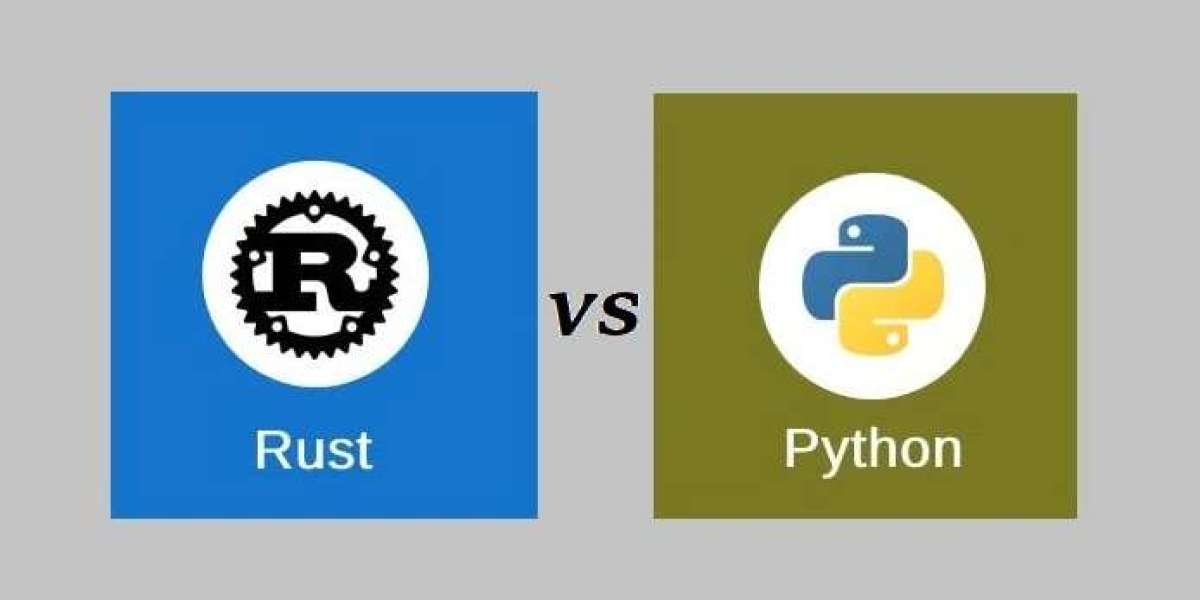Introduction to Rust vs Python
Rust vs Python is a comparison that often arises in the context of performance, ease of use, and developer productivity. While Python is renowned for its simplicity and wide range of applications, Rust offers more control over memory management and provides high performance, making it a favorite in system-level programming. Understanding the unique characteristics of each language can help developers choose the right one for their specific needs.
Rust: An Overview
Rust is a systems programming language known for its speed and safety. It was designed with performance in mind, offering low-level memory control without compromising safety. Rust’s ownership model ensures memory safety by preventing issues like null pointer dereferencing and data races. This makes it an ideal choice for applications where performance and safety are critical, such as game engines, operating systems, and embedded systems.
Memory Safety and Performance in Rust
One of Rust's standout features is its memory safety model. Unlike other languages, Rust ensures that memory errors, such as buffer overflows or dangling pointers, are caught at compile time. The ownership and borrowing system eliminates the need for a garbage collector, making it possible to write highly efficient code with minimal runtime overhead.
Concurrency in Rust
Rust provides strong support for concurrency. Its ownership system prevents data races, a common problem in multithreaded applications. This allows developers to write concurrent programs that are both safe and efficient, giving Rust an edge when it comes to performance-critical applications.
Python: An Overview
Python, on the other hand, is a high-level language that emphasizes readability and simplicity. It is often the go-to language for web development, data science, artificial intelligence, and automation. Python’s syntax is designed to be intuitive, making it easy for developers to write clean and understandable code quickly. Despite its slower performance compared to Rust, Python's extensive libraries and frameworks make it incredibly versatile.
Ease of Use and Productivity in Python
Python’s main advantage is its ease of use. Its clean and readable syntax allows developers to focus more on solving problems than on managing complex code structures. This makes Python an excellent choice for rapid development, especially for startups and teams working under tight deadlines.
Libraries and Frameworks in Python
Another reason Python shines is its vast ecosystem of libraries and frameworks. From Django for web development to TensorFlow for machine learning, Python offers tools that speed up development across various domains. This extensive support allows developers to leverage existing solutions instead of reinventing the wheel.
Performance Comparison: Rust vs Python
When comparing Rust vs Python, performance is one of the most noticeable differences. Rust is significantly faster due to its low-level control over memory and lack of a garbage collector. It can outperform Python in tasks that require heavy computation, such as game development, systems programming, or tasks with high concurrency.
Speed and Efficiency in Rust
Rust’s speed comes from its ability to compile directly to machine code. Without a garbage collector running in the background, Rust’s programs are lean and run with minimal overhead. This makes Rust ideal for situations where speed is a top priority.
Python's Slower Performance
While Python excels in many areas, performance is not its strong suit. Python is an interpreted language, which means that code execution is generally slower compared to compiled languages like Rust. This becomes evident in computation-heavy tasks, such as numerical simulations or image processing.
Developer Experience: Rust vs Python
The ease of writing code is another critical factor when considering Rust vs Python. Python wins hands down in terms of developer experience, largely due to its clean, readable syntax and dynamic nature. Rust, while powerful, has a steeper learning curve, especially for those unfamiliar with systems programming.
Python's Simplicity
One of Python’s most compelling features is its simplicity. With less boilerplate code and a more intuitive structure, Python enables developers to focus on the problem at hand rather than on the technicalities of the language itself. Python also benefits from automatic memory management, reducing the cognitive load on developers.
Rust’s Steeper Learning Curve
Rust’s learning curve can be steep for beginners, especially when compared to Python. Its ownership model and complex syntax can be intimidating at first, but once mastered, Rust allows for more control and optimization. This makes it ideal for developers who need to write highly efficient and safe code.
Use Cases: When to Choose Rust vs Python
The decision to use Rust vs Python ultimately depends on the project requirements. If you need high performance and control over memory management, Rust is the better choice. However, if you prioritize rapid development and ease of use, Python is more suited to your needs.
Ideal Use Cases for Rust
Rust excels in use cases that demand high performance and safety, such as:
- System programming
- Game development
- Embedded systems
- WebAssembly
- High-concurrency applications
Rust’s ability to deliver high performance without compromising safety makes it the go-to choice for tasks where every millisecond counts.
Ideal Use Cases for Python
Python is an excellent choice for:
- Web development (Django, Flask)
- Data science and machine learning
- Automation scripts
- Prototyping
- Educational purposes
Python’s versatility and ease of use make it an ideal choice for projects that require quick development and extensive library support.
Conclusion: Rust vs Python – Which One to Choose?
In the debate of Rust vs Python, there is no clear winner. Both languages have their strengths and weaknesses, and the best choice depends on your project’s needs. Rust is ideal for performance-critical applications that require tight control over memory and concurrency. Python, on the other hand, is perfect for projects that prioritize rapid development, simplicity, and an extensive ecosystem of libraries.
By understanding the differences between Rust and Python, developers can make an informed decision based on the unique requirements of their projects. Whether you choose Rust for its performance or Python for its ease of use, both languages have proven to be powerful tools in the world of programming.







